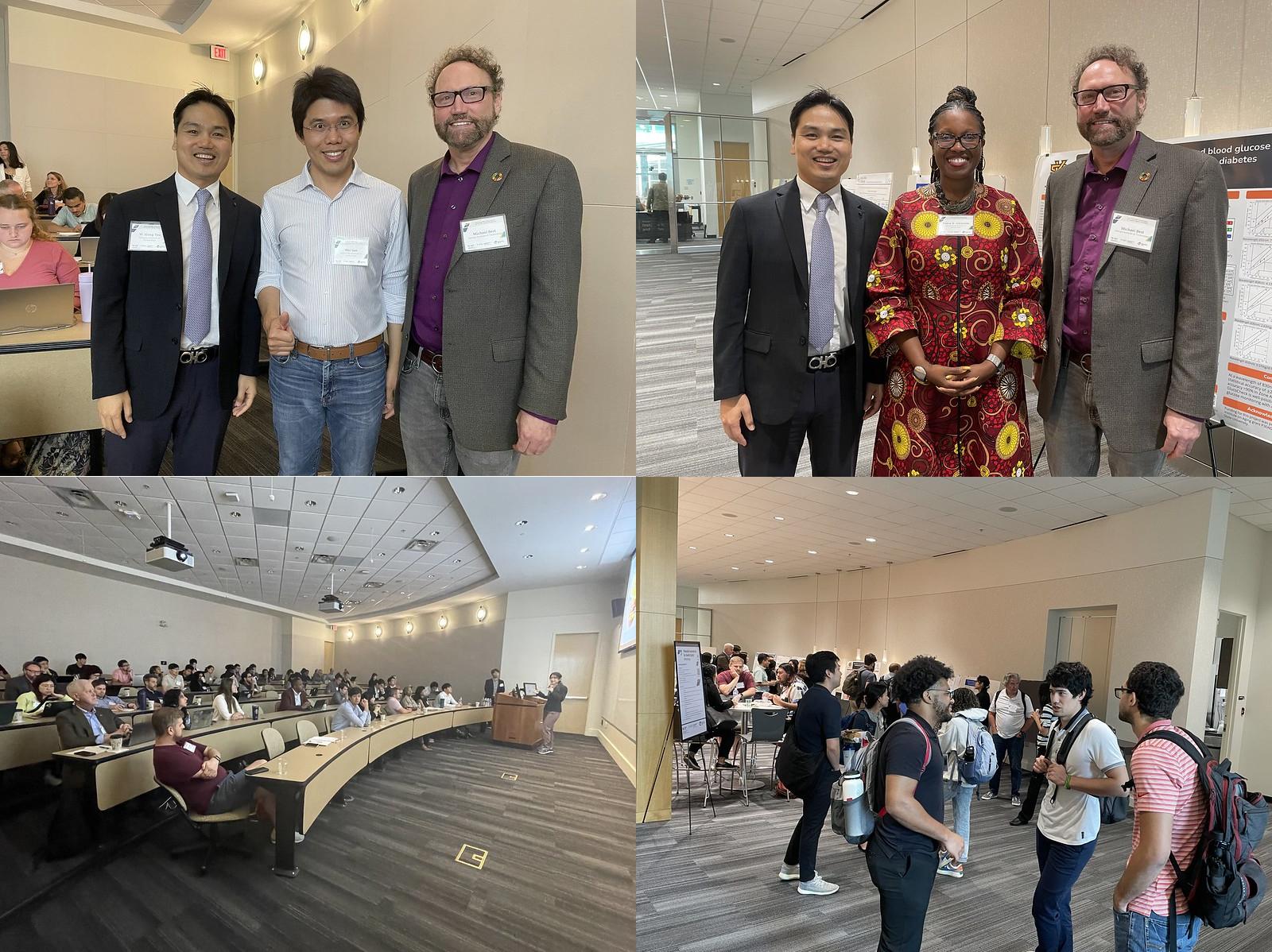Wearables for Health Equity Workshop
Sep 17, 2024 — Atlanta

Wearable Innovations for Health Equity Workshop. Pictured clockwise: W. Hong Yeo, director of the Wearable Intelligent Systems and Healthcare Center at Georgia Tech; Wei Gao, professor at CalTech; Michael Best, executive director of IPaT; Tabia Henry Akintobi, professor at the Morehouse School of Medicine; poster sessions; and lightning talks.
The inaugural Wearable Innovations for Health Equity Workshop held on September 10, 2024 at Georgia Tech delivered a variety of new knowledge, insight, and exceptional networking opportunities.
The workshop was jointly sponsored by Georgia Tech’s Wearable Intelligent Systems and Healthcare Center, the Institute for People and Technology, the Emory Global Diabetes Research Center, and the Georgia Center for Diabetes Translation Research. The aim of the event was to raise awareness and discuss the transformative impact of wearable technologies in promoting wellness and increasing equitable health outcomes.
Attendees at the event included health practitioners, researchers, engineers, and patients who shared experiences using some of the latest wearable health devices. Workshop participants came from Georgia Tech, Emory University, Georgia State University, Morehouse School of Medicine, Children’s Healthcare of Atlanta, and the University of Georgia.
Keynote speaker Wei Gao, a professor of medical engineering from the California Institute of Technology, shared some of his latest wearable health technologies combining his chemical engineering background with the latest biochemical sensor technologies being developed in his lab at CalTech.
The second keynote speaker, Tabia Henry Akintobi, professor and chair of community health and preventive medicine at the Morehouse School of Medicine, delivered a detailed overview of her prevention research center program, community health statistics, and touched on health outcomes for different racial and ethnic groups including those with disabilities. She stressed the path forward for wearable health devices included expansion of access to data, approaching technology access through a community-driven social marketing plan, and better representativeness of diverse populations in wearable innovations research.
Poster sessions, panel discussions, and researcher lightning talks were held between the keynote speaker presentations with the event concluding with a reception and networking session at the end of the day.
Agenda and details for the event (archived).
Walter Rich





